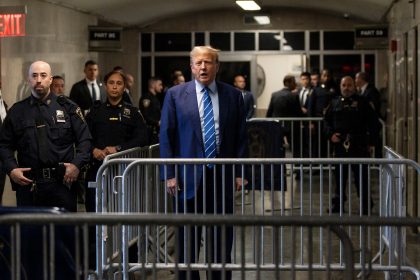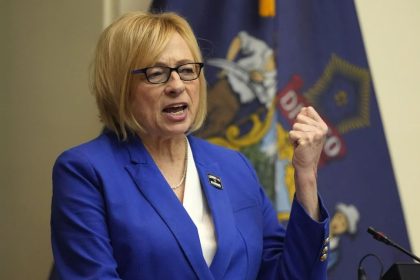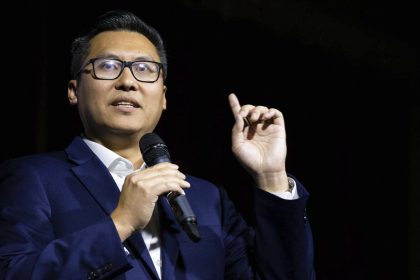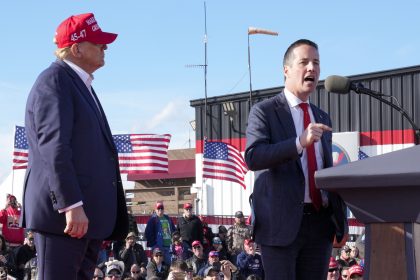Secretaries of State Seek to Put Post-Election ‘Fraudits’ to Rest
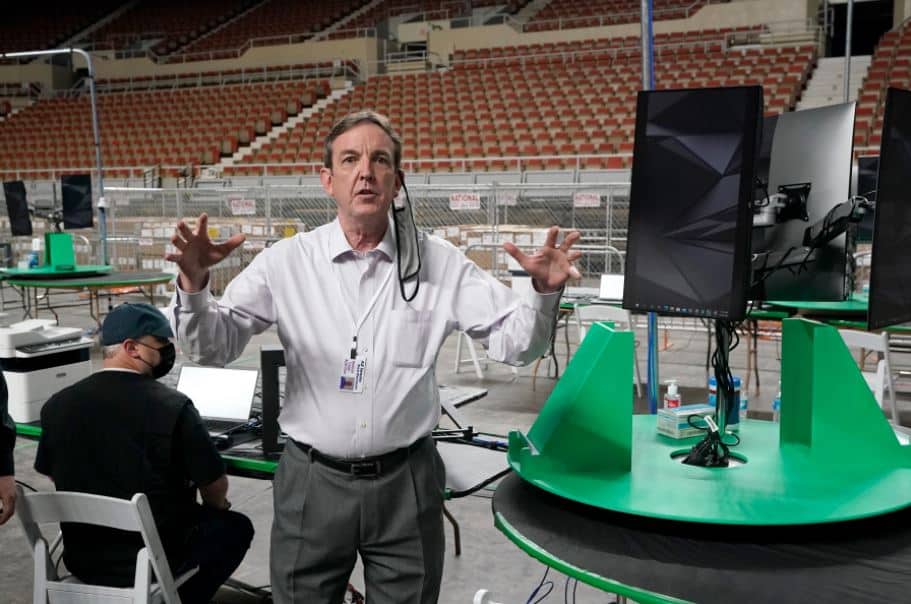
They were the strange spectacle after the big show. In the weeks and months following the 2020 election, dedicated conspiracy theorists and “Stop the Steal” activists descended on Arizona to “audit” the state’s presidential election results.
Critics of the effort called it a “fraudit,” but Republicans in four other states that former President Donald Trump lost – Georgia, Michigan, Pennsylvania and Wisconsin – nevertheless pressed ahead with attempts to do the same in those jurisdictions.
Finally, this past July, the Justice Department weighed in, warning states that were conducting or considering audits of the 2020 election that they may be using procedures that violate federal protections against voter intimidation and other statutes.
“Election audits are exceedingly rare,” the Justice Department said in new guidance on post-election audits. “But the Department is concerned that some jurisdictions conducting them may be using, or proposing to use, procedures that risk violating the Civil Rights Act.”
Post-election reviews of ballots have long been part of election administration, though how they are carried out varies from state to state, and at least six states conduct no post-election audits at all.
This past week, a National Association of Secretaries of State task force unveiled a series of recommendations to rationalize and improve the process. In developing them, the group, a bipartisan collection of eight top election officials, looked for ways to promote a greater public understanding of the processes, procedures, and necessary elements for successful audits.
“Looking around the country, it was very clear that states are doing a variety of different things, and what we were looking for were national best practices or standards,” said Maine Secretary of State Kristen Muszynski.
“For states that already have post-election audit procedures in place, the recommendations can be helpful as they try to fine tune their post-election audit laws; for others, like mine, where we don’t have an audit law, our report provides a roadmap for our legislature on how to move forward,” she said.
Iowa Secretary of State Paul Pate said his state conducts post-election audits after every election and election officials there believe it’s a vital part of ensuring the integrity of the vote.
“Our audits following the November 2020 election matched the vote tabulators in all 99 counties, perfectly,” he said with pride. “The NASS report lays out basic guidelines that we think it’s important for states to follow. Most importantly, we should know the rules ahead of time, before the election. State election officials are referees for elections. We follow the rules laid out by our state legislatures. Referees don’t change the rules during or after a game, and that’s how it should be with elections and post-election audits.”
At their most basic, post-election audits are designed to ensure the accuracy of election results, verify the integrity of the election, and promote voter confidence in the election process.
During the process, election officials check to ensure the equipment and procedures used to count votes during an election worked properly, and that the election yielded the correct outcome.
According to the National Conference of States Legislatures, the phrase “post-election audits” can be used to mean a variety of election validation efforts, as a term of art it refers to checking paper ballots or records against the results produced by the voting system to ensure accuracy.
Paper records used in an audit may include voter-marked paper ballots, voter-verified paper audit trails produced by direct-recording electronic voting machines or paper ballot records produced by ballot-marking devices.
Typically only a sample of the paper records are examined, so in effect a post-election audit is a partial recount of results to verify that the voting system is accurately recording and counting votes.
Although post-election audits can lead to a full recount if errors are detected, they differ from a recount in that they are conducted regardless of the margins of victory. Recounts are most often triggered or requested if there is a tight margin of victory, according to the NCSL.
Muszynski said the recommendations that follow stem from election officials, from all parties, “sharing one goal.”
“More than anything, we want to uphold the integrity of our elections because elections are fundamental to our democracy,” she said. “And each of these best practices is the result of genuine conversations about what people did, what they ought not to do, and how to prevent the process from breaking down.”
The recommendations are as follows:
● States should have a requirement and timeframe, ideally in state statute, for post-election audits in place prior to an election. These defined requirements should include conducting the audit as soon as reasonably possible after an election, as well as a process to recertify election results based on the results of the audit.
● Ensuring chain of custody procedures throughout the post-election audit process is paramount. Election officials should be able to track the movement and transport of ballots, voting machines, and other election materials through witnesses, signature logs, security seals, video, etc. A break in the chain of custody increases the risk that the integrity or reliability of the asset cannot be restored.
● Have state and/or local election officials be an integral part of the post-election audit process, including in the selection of the precincts or equipment to be audited.
● The post-election audit methods and processes must be transparent. This includes identifying who may observe the audit, which should include members of the public, media, political party and/or candidate representatives.
● To avert the possibility of voting systems becoming unusable, states should have criteria in place prior to an election for the use of a federally or a state accredited test lab to perform any audit of voting machine hardware or software.
● States should make every effort to educate the public on their post-election audit process, as well as other processes and procedures in place to ensure the accuracy and public trust of the results.
Alex Curtas, spokesman for New Mexico Secretary of State Maggie Toulouse Oliver, said while some may point to the last presidential election and consider the outcome controversial, the reality is “secretaries of State and election officials around the nation do indeed do a wonderful job of running elections.”
“This was demonstrated in 2020 as they conducted the most secure election in history,” he said.
“One of the great strengths of American elections is that they are run by the states, which ensures local control and better overall security,” he continued. “Different states have different procedures when it comes to post-election audits, but the main point is that the NASS Task Force on Vote Verification is encouraging states to consider these recommendations for all types of post-election audits.
“The Task Force recommendations are non-partisan best-practices that can be applied in any state, regardless of what procedures those states have implemented in the past,” Curtas said.
Muszynski agreed.
“One of the things we know, even as we’re releasing these recommendations, is that the implementation will continue to look different in every state,” she said. “But we thought it important to come up with a document we could point to and say, ‘Here is a bipartisan collection of national best practices.’”
“Post-election audits are a way to ensure the integrity of the vote and to ensure public confidence in our elections,” Curtas said. “The more they are used in future elections the better. It does seem likely that these audits will be more prevalent in the future and, given that, these Task Force recommendations are a great way to guide that process.
“The first recommendation provides a great example of how states can ensure a trusted process from the get-go — namely, that ‘States should have a requirement and timeframe, ideally in state statute, for post-election audits in place prior to an election,’” he said.

















